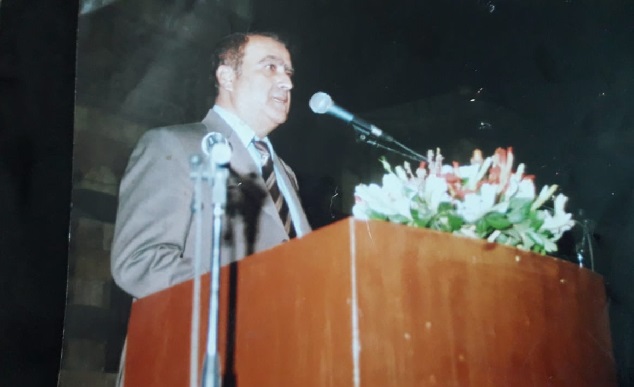“Great books are never bound by the languages they are written in, they travel through languages.” 1
ST Interview with Dr. Fawaz Zaarour on translation
Geoffrey Willians said, “You can never understand one language, until you understand at least two.” If you think your language is unique because it has sounds and phrases that other languages cannot possibly have, you are in for a huge surprise. The beauty of knowing other languages is that it gives you a unique perspective about how other cultures think, and how they describe the world around them, which sometimes can be surprisingly different. We have all known of idioms and phrases that cannot be translated no matter what, and that is because of the simple reason that cultures are untranslatable.
Yet this fact has not dissuaded Dr. Zaarour from translating more than 50 prominent international books from English into Arabic, and vice versa. Great books are never bound by the languages they are written in; they travel through languages, spaces, and cultures, and that is what makes a great book great. Dr. Zaarour has as well authored four unpublished books; some of his publications are being taught in the most prestigious Arab and international universities.
Usually invisible and taken-for-granted, acts of translation take place around us all the time. However, in the field of professional translation, questions of evaluation and regulation of translation work matter.
In his talk with SyriaTimes, Dr. Zaarour did not hide his worries and melancholies towards the translator profession- which I share with him as translator. “Despite the fact of being one of the most time, effort and even health consuming occupation, little is done, particularly in the Arab World, to establish strict regulation to assure the wellbeing of the translation process,”He stated.
A case shared by most translators worldwide, acknowledged British translator, Josephine Bacon, said in her article “Crisis in the Translation Industry” that “Translation and Interpreting are badly paid in the West, when compared to other skilled jobs. Now even what translators are owed is not being paid.”[i]As a matter of necessity there should be a unified guideline made by the Translators Union clarifying rights and obligations of both parties, like standardization of pricing per word translation.
A Chinese proverb says, “to learn a language is to have one more window from which to look at the world”, a matter which made Dr. Zaarour not only learn a language and look at the world through another window, but as well he opened his doors in front of other thirsty learners by serving as a lecturer in the Department of English Language. He also worked as a lecturer in the Postgraduate Studies Department, and the Faculties of Media and Science at the University of Damascus, until 2011. Moreover, he worked at the Lebanese University, the ULF (Lebanese French University) and the Libannel Institute, until 2012.
It is noteworthy to mention that the two great translation movements throughout history werethe Graeco-Arabic in the Umayyad and Abbasid periods (2nd-4th and 8th-10th century) and Indo-Persian (13th-19th centuries) — Eventually, Arabic played a major role in the world attempts to translate knowledge across linguistic boundaries in world history. This contributed in transcending barriers of language and space, and acts of translation touched and transformed every aspect of life: from arts and crafts, through beliefs and customs, to society and politics.
Thus, translation could be represented in various aspects of life, like diplomatic representation to assure the ongoing mutual relations between countries, which made Dr. Zaarour work in the diplomatic corps, Media Section at the Indian Embassy in Damascus, as a senior interpreter and editor-in-chief of Al-Hind Magazine, from 1996-2006. Translation is as well making a large work in the Media Industry that made Dr. Zaarour enter this domain by working as a translator for Channel-2 of the Syrian Arab Radio and TV Organization during the period 1990-1996, in parallel with his academic work.
It is worth noting that Dr. Zaarour, who is holding a double nationality, Syrian-Lebanese, is a member of the Union of Arab Writers and the Union of Lebanese Writers, and he has many wonderful literary and poetic activities that have been unrivaled in all literary circles at the highest levels. He is also one of the founding members of the Literary Wing Forum, and vice president of the Authority for the Protection and Investment of Arab Brains in Lebanon. Besides, it is worth noting that Dr. Zaarour is the recipient of more than one prize in the fields of poetry and chess.
We live in a world rife with controversies around cultural and identity appropriation. The power differentials created by the twin forces of colonialism and capitalism are being interrogated in every realm today. It was only a matter of time before these burning issues ignited the art of translation. Consequently, marginalized creative practitioners and their growing audiences assume importance in a global publishing regime controlled by a dominant minority wielding majority power over issues of representation and identity, since a translator is a reader, an interpreter and a creator all in one.
Report and Interview: Lama Alhassanieh

